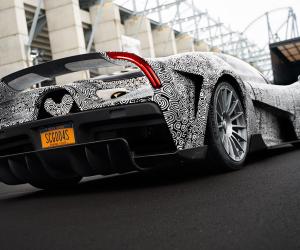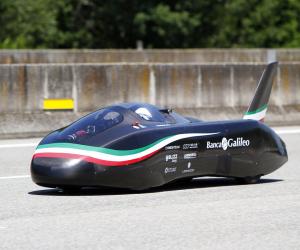
Techrules Ren
Podium Advanced Technologies has designed the innovative four motors and turbine range extender architecture and the battery pack of Ren, the first vehicle from the China-based automotive research and development company Techrules.
The Ren, which made its debut at the 2017 Geneva Motor Show with an innovative design style signed by Fabrizio and Giorgetto Giugiaro, is the world’s first electric production supercar to feature the Techrules-developed Turbine-Recharging Electric Vehicle (TREV) system. The series hybrid powertrain technology delivers high levels of efficiency and performance, and an ultra-low environmental impact.
A variety of configurations will be available to tailor the powertrain to the exact requirements of the customer. The flagship version – with a battery capacity of 25 kWh and with two motors at the front and four at the rear – delivers maximum power of 960kW with a range of 1,170 km from 80 litres of diesel fuel (NEDC).
The drivetrain comprises two, four or six axial flux, liquid-cooled electric motors manufactured by YASA in the UK.
The rear-wheel-drive two-motor configuration will see a motor driving each rear wheel. A four-motor set-up will drive all four wheels. The highest-power six-motor configuration has two motors for each rear wheel, and one for each front wheel.

Sport PHEV application
50C Maximum discharge rate
70% Cell to pack weight ratio
Pack energy density exceeding 126Wh/kg






